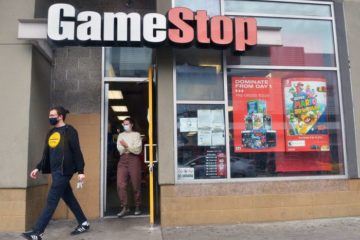 Eric Levitz in NY Magazine:
Eric Levitz in NY Magazine:
Last week, a motley mass of shitposters, gambling enthusiasts, and disaffected Zoomers — united by hate for Wall Street and love of chicken tenders — beat a multibillion-dollar hedge fund at its own game. Through their collective intelligence and audacity, users of the Reddit forum WallStreetBets executed a sophisticated “short squeeze” that took money away from some billionaire speculators, gave it to some badly indebted workers, and made a mockery of neoliberal capitalism’s legitimizing myths. Unfortunately, right when these working-class retail investors had Wall Street’s titans on the run, the plutocracy’s visible hand appeared to reach down and thwart them: Robinhood, a trading app popular with young recreational investors, suddenly barred its users from buying GameStop shares, thereby relieving pressure on the hedge-fund shorts.
That is one way of recounting the GameStop rally, anyway.
Here is another: A group of small-time speculators — including some finance-industry professionals — orchestrated a pump-and-dump scheme that involved convincing a lot of financially inexpert (and/or politically disaffected) people that they could stick it to Wall Street’s largest money managers by … bidding up the price of an equity that is owned by Wall Street’s largest money managers. This generated enough momentum to trigger a “short squeeze,” and the price of GameStop shares shot to the moon. Wall-to-wall media coverage ensued. Inexperienced investors bought the hype, and began piling into what now resembled a Ponzi scheme: When the bubble finally burst, those who bought in early would have a chance to cash out before the stock fell beneath their break-even price; those who bought late would have little warning before the “dump” wiped them out. By late last week, so many people were buying GameStop shares over gamified phone apps that regulations aimed at ensuring the stability of financial markets kicked into gear. The stock market’s central clearing hub calculated that it faced a high risk in facilitating more GME buys, and demanded billions in collateral from brokerages ordering such trades. Lacking the funds necessary to meet this demand, Robinhood was compelled to restrict GameStop buying on its platform while it sought an infusion of liquidity. That pause hastened the inevitable end of the GameStop rally, which ultimately achieved little beyond popularizing participation in stock trading (a development that will enrich Wall Street at the expense of working-class people with gambling problems).
More here.
